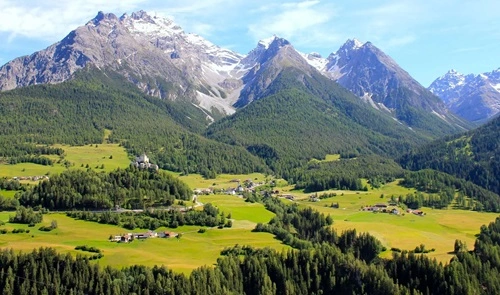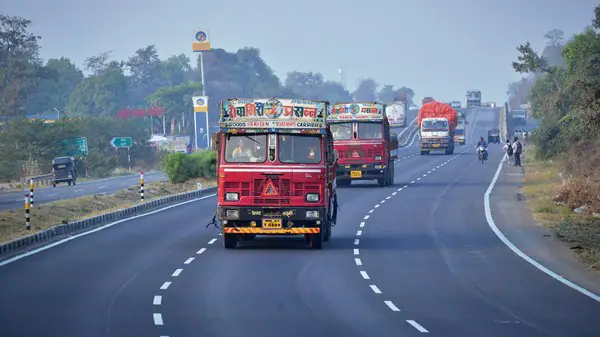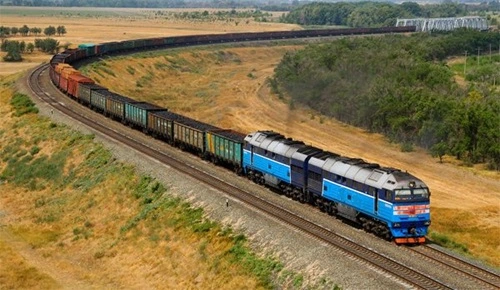Switzerland, known for its breathtaking landscapes, precision watches, and delectable chocolates, is a country that enchants travelers and impresses with its innovative spirit. Nestled in the heart of Europe, Switzerland is more than just mountains and financial institutions—it’s a place of unique customs, rich history, and environmental excellence. Here are over ten fun facts about Switzerland that reveal what makes this Alpine nation so remarkable.

1. Switzerland Has Four Official Languages
Switzerland is a linguistic mosaic, with four official languages: German, French, Italian, and Romansh. Different regions, or “cantons,” primarily speak one language, with German being the most widely spoken. In the western part, French prevails; Italian is spoken in the southern canton of Ticino, and Romansh, an ancient language, is used in parts of Graubünden. This multilingual nature reflects the diverse culture and inclusivity of the Swiss people.
2. Home to the World’s Most Accurate Clocks
Swiss craftsmanship is synonymous with high-quality watches. Swiss watch brands like Rolex, Patek Philippe, and Omega have set global standards for precision and luxury. Switzerland produces around 20 million watches each year, making up over 50% of the global watch market’s value. The Swiss watch industry’s reputation for excellence and durability dates back to the 16th century and remains a point of national pride.
3. Mountains Cover More Than Half of Switzerland
With the Alps and Jura Mountains, over 60% of Switzerland’s land area is mountainous, providing spectacular landscapes and world-renowned ski resorts. Peaks like the Matterhorn and Jungfrau attract mountaineers and adventure seekers from around the world. Switzerland’s rugged terrain has also preserved traditional villages and customs, making it a top destination for those seeking both adventure and cultural immersion.
4. Direct Democracy Is Part of Swiss Life
Switzerland practices a unique form of direct democracy, where citizens vote not only in elections but also on policies. National referendums occur four times a year, allowing Swiss citizens to vote on various issues, from healthcare and education to foreign policy. This practice of direct democracy gives Swiss people an active role in government decisions and reflects their strong emphasis on civic responsibility.
5. Swiss Chocolate Is Famous Worldwide
Swiss chocolate is known for its creamy texture and rich flavor, and it’s no wonder since Switzerland is credited with inventing milk chocolate. In 1875, Daniel Peter, a Swiss chocolatier, combined milk with cocoa, creating a smooth chocolate that became instantly popular. Brands like Toblerone, Lindt, and Cailler have made Swiss chocolate famous worldwide, and Swiss people consume over 20 pounds of chocolate per person each year!
6. Switzerland Has One of the World’s Best Public Transport Systems
Switzerland’s public transport system is considered one of the most efficient and reliable in the world. With trains, buses, and boats running on time across the country, getting around Switzerland is convenient and scenic. The Swiss Federal Railways (SBB) is famous for its punctuality, while routes like the Glacier Express and Bernina Express offer breathtaking views of the Swiss Alps, drawing both locals and tourists.
7. Home to Numerous International Organizations
Switzerland is a hub for international diplomacy and cooperation. Geneva is home to many organizations, including the United Nations, the International Red Cross, and the World Health Organization. Known for its neutrality, Switzerland provides a stable and secure environment for these organizations, reinforcing its role in global peacebuilding and humanitarian work.
8. Swiss Army Knives Are a National Icon
The Swiss Army Knife is one of Switzerland’s most iconic exports. Originally produced by Victorinox in the 1890s, these multifunctional tools were designed for soldiers but quickly became popular worldwide. Known for their practicality and quality, Swiss Army Knives feature everything from screwdrivers to scissors, bottle openers, and even USB drives, making them a must-have for adventurers and gadget lovers alike.
9. No Official Capital City
Unlike most countries, Switzerland does not have an official capital city. Instead, Bern serves as the “federal city” and houses the federal government. This decision reflects Switzerland’s focus on decentralization, with Zurich as the financial hub and Geneva as the center for international diplomacy. Each city has its unique role, contributing to Switzerland’s overall stability and balance.
10. One of the Safest Countries in the World
Switzerland consistently ranks among the safest countries in the world due to its low crime rate and well-functioning legal system. Swiss citizens benefit from an efficient police force, a high standard of living, and a strong social safety net, all of which contribute to a feeling of security. Switzerland’s commitment to neutrality and diplomatic relations has also kept it out of major conflicts, adding to its reputation as a peaceful nation.
11. The Origin of Yodeling
While often associated with Switzerland, yodeling actually has roots in Alpine regions across Europe. Swiss yodeling began as a way for shepherds to communicate across the mountains and eventually became part of Swiss folk music. Today, yodeling festivals celebrate this tradition, and many visitors enjoy learning this unique vocal style in cultural workshops across the country.
12. Banking Confidentiality and Financial Prowess
Switzerland has long been known for its strict banking confidentiality laws and robust financial industry. Swiss banks attract clients from around the world due to their privacy protections and financial expertise. However, recent international regulations have increased transparency, encouraging Switzerland to balance its historical financial reputation with modern standards for accountability.
13. Home to the World’s Longest Rail Tunnel
The Gotthard Base Tunnel, stretching over 35 miles through the Swiss Alps, is the longest and deepest rail tunnel in the world. Completed in 2016, the tunnel took 17 years to build and significantly reduces travel time between northern and southern Europe. This engineering marvel showcases Switzerland’s commitment to innovation and infrastructure, connecting communities and facilitating trade across the continent.
14. Fondue: A National Dish
Fondue, a dish of melted cheese served with bread for dipping, is a traditional Swiss dish that has become a symbol of Swiss culture. Originating as a way to use leftover cheese and bread, fondue is now a communal experience shared by family and friends. The classic Swiss fondue is made with a mix of Gruyère and Emmental cheeses, white wine, and garlic, offering a cozy and flavorful dining experience.
15. Switzerland Has More Than 7,000 Lakes
Switzerland is home to over 7,000 lakes, with Lake Geneva, Lake Constance, and Lake Lucerne among the most famous. These lakes provide stunning scenic views, offer recreational activities like boating and swimming, and supply fresh water. Switzerland’s lakes also contribute to the country’s hydroelectric power, a key component of its renewable energy strategy.
16. The Red Cross Was Founded in Switzerland
The International Red Cross was founded in Geneva in 1863 by Henry Dunant, a Swiss humanitarian who sought to help soldiers wounded in battle. His efforts eventually led to the Geneva Conventions, which set standards for international humanitarian law. Today, the Red Cross is active worldwide, and its Swiss origins are a testament to Switzerland’s commitment to peace and humanitarian aid.
17. Mandatory Military Service for Swiss Men
Switzerland has mandatory military service for men aged 18 to 30, requiring them to serve in the Swiss Armed Forces. Swiss citizens can either complete their service through training or serve in a civilian protection role. Switzerland’s military policy emphasizes defense, with many citizens keeping their equipment at home to ensure rapid mobilization if needed.
18. Swiss Schools Emphasize Multilingual Education
Switzerland’s education system places a high value on multilingualism, reflecting the country’s linguistic diversity. In most regions, students learn at least one of the other official languages in addition to their primary language, and English is commonly taught as well. This focus on multilingual education prepares Swiss students to thrive in the international environment that defines Switzerland.
19. Switzerland Leads in Environmental Sustainability
Switzerland consistently ranks among the world’s most eco-friendly countries. The Swiss are committed to recycling, with recycling rates among the highest in the world. Additionally, Switzerland is a leader in renewable energy, particularly hydroelectric power, which provides over half of the nation’s electricity. Swiss citizens prioritize sustainable practices, from waste reduction to supporting clean public transportation.
20. Switzerland Is the Only Country with a Square Flag
Switzerland’s flag is unique, as it is one of the only national flags that is square rather than rectangular. The red flag with a white cross is recognized worldwide and has remained unchanged since the 19th century. This simple but bold design has come to symbolize Swiss pride, neutrality, and unity, instantly recognizable to people around the globe.
Conclusion
Switzerland is a country filled with surprises, from its stunning mountain landscapes and rich culinary traditions to its innovative spirit and commitment to neutrality. The combination of natural beauty, cultural diversity, and high-quality craftsmanship makes Switzerland a truly unique destination. Whether you’re savoring Swiss chocolate, exploring Alpine peaks, or learning about the nation’s history of diplomacy, Switzerland offers experiences that are as enriching as they are memorable.
These fascinating facts highlight why Switzerland is much more than just a travel destination—it’s a land of heritage, tradition, and modern innovation. Next time you think of Switzerland, remember these unique insights and appreciate the many ways this small but mighty country has made an impact on the world.


